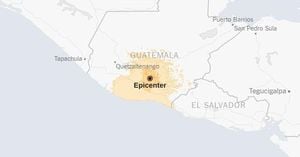Octopus Energy, the UK's largest residential gas and electricity supplier, is set to pay £1.5 million in refunds and compensation after an Ofgem investigation revealed the company failed to issue final bills to over 34,000 prepayment meter customers within the required six-week period. The issue spans from 2016 to October 2023 and concerns customers who switched suppliers or ended their contracts during this time.
The energy watchdog found that Octopus did not send final bills in a timely manner, breaching Ofgem’s rules designed to protect consumers—especially vulnerable ones who rely on prepayment meters. These meters require customers to top up their gas or electricity in advance, often used by households managing tight budgets or those with past payment difficulties.
Octopus has agreed to pay £1.25 million in compensation alongside refunds of £231,000 representing credit balances left on accounts when they were closed, bringing the total payout to around £1.48 million. This averages out to about £43 per affected customer. The company has taken steps to contact all impacted customers using existing records and, where necessary, has employed third-party tracing agencies to reach those who were initially unreachable. Payments have already begun, with direct deposits and cheques being sent out, and Octopus expects all contactable customers to be compensated by September 2025. Any unclaimed funds will be transferred to the Energy Industry Voluntary Redress Fund, which supports vulnerable energy consumers.
Ofgem’s director for consumer protection and competition, Beth Martin, emphasized the importance of final bills. She said, “It’s important that customers receive final bills in accordance with our rules, so they are aware of any credit remaining on their accounts and can reclaim it. This is particularly important for prepayment meter customers who are more likely to be in financial difficulty.” The regulator first flagged the issue after E.ON Next, another energy supplier, self-reported a similar failure, leading to wider investigations across the sector.
Octopus Energy, however, has been vocal in its criticism of Ofgem’s approach. The company stated that the regulator spent “two years investigating an alleged issue with prepayment meter bills that had zero customer complaints and had already channelled millions of pounds into customers’ hands.” The firm argues that while Ofgem’s rule requiring final bills upon customers moving out is “sensible in principle,” it is “impossible to implement in most cases.”
One major challenge Octopus highlights is that 60% of its prepayment customers do not notify the company when they move, making it difficult to send final bills and refund credits. Additionally, Octopus only has bank account details for about 10% of these customers, and 70% of refund cheques sent out went uncashed due to missing forwarding addresses. The company also points to slow and unreliable traditional prepayment industry systems that hinder timely final billing.
Greg Jackson, Octopus founder and CEO, took to social media to express his frustration with Ofgem’s handling of the matter. He called the outcome “embarrassing for Ofgem” and accused the regulator of an “addiction to sensational headlines” and “pedantic box-ticking.” Jackson also disputed the timeline in Ofgem’s statement, noting that Octopus launched in 2016, not 2014 as the regulator’s press release suggested.
Octopus further defended its practices by stating that instead of strictly following Ofgem’s final bill mandate, it charges prepayment customers about £70 below the price cap, effectively saving them over £7 million compared to what would have been paid under the regulator’s approach. The company also leaves any remaining credit on meters for new tenants, arguing this benefits incoming customers, although Ofgem maintains that credit belongs to the original customer and must be refunded.
The controversy is not isolated to Octopus. Two other suppliers using Octopus’s Kraken billing platform—E.ON Next and Good Energy—have also paid out compensation for similar failures. E.ON Next self-reported the issue and paid £14.5 million to 248,000 customers in November 2024, while Good Energy paid £150,000 in May 2025.
Rachel Fletcher, Octopus’s director of economics and regulation, underscored the company’s commitment to customer outcomes despite industry challenges. “Octopus has always been focused on doing the right thing for customers and thinking outside the box to deliver good outcomes for customers despite imperfect industry systems and data,” she said. Fletcher also called on Ofgem to prioritize lowering energy bills over strict policy enforcement, stating, “With energy costs soaring, we’d like to see Ofgem put people over policies. People want lower bills. We’d like to see Ofgem focusing its efforts on delivering that.”
For customers wondering if they are eligible for compensation, Ofgem’s guaranteed standards require suppliers to send a final bill within six weeks of account closure and refund any credit within ten working days. If these deadlines are missed, suppliers must pay £40 in compensation within ten working days, with an additional £40 payable if this compensation is also delayed. Customers who did not receive their final bill or compensation within these timeframes, or who had credit left unrefunded, should contact Octopus Energy directly via [email protected] or call 0808 164 1088.
The case highlights the complexities energy suppliers face with prepayment meter systems, which remain reliant on outdated infrastructure and incomplete customer data. While the regulatory framework aims to protect consumers, particularly those vulnerable to financial hardship, suppliers argue that some rules are difficult to enforce in practice.
As Octopus Energy moves forward, it has committed to complying with Ofgem’s rules and intensifying efforts to reach all affected customers. The regulator will continue monitoring compliance across the sector to ensure customers receive the highest standards of service.





